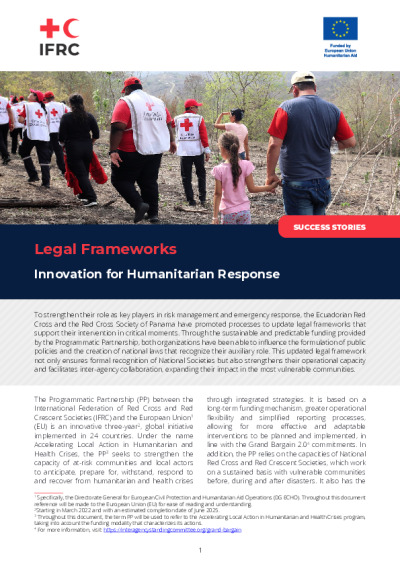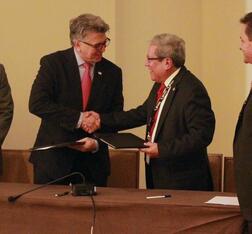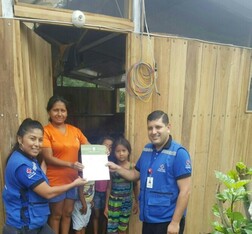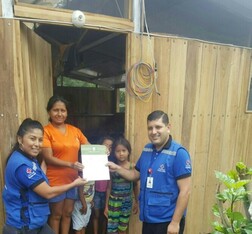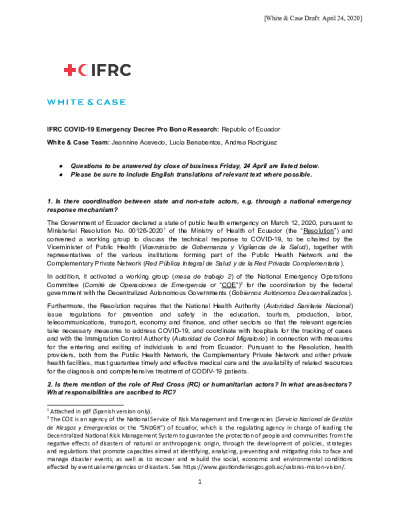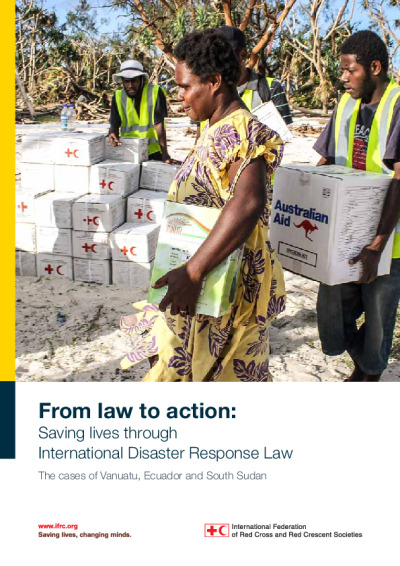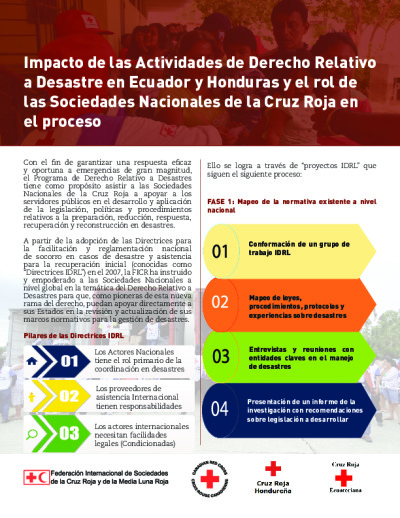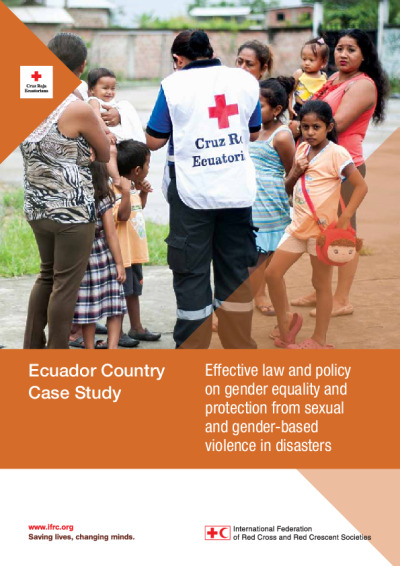In 2013, the Ecuadorian Red Cross (ERC) worked with national authorities to assess the strengths and weaknesses of the national legal and institutional framework for international disaster assistance, using the IDRL Guidelines as a benchmark. The resulting report provided recommendations, which served as the basis for a roadmap to strengthen the country’s legal system for managing international disaster assistance.
This work on IDRL was of great value during response to the magnitude 7.8 earthquake that struck coastal Ecuador on 16 April 2016. A prior awareness and understanding of IDRL issues meant that important legal facilities were provided during the emergency operation, based on key recommendations in the IDRL report. Ecuador's success in implementing IDRL was subsequently featured in the 2017 IFRC Disaster Law report, From Law to Action: Saving Lives through International Disaster Response Law.
In 2017, Ecuador was part of the IFRC Disaster Law study entitled Effective Law and Policy on Gender Equality and Protection from Sexual and Gender-Based Violence in Disasters. The study aimed to fill a gap in knowledge on the effectiveness of national laws, policies and institutional frameworks in supporting gender equality in disaster risk management and in preventing and responding to sexual and gender-based violence in disasters. As part of the study, a case study on Ecuador was prepared.
In 2021, based on the IFRC Guide to Strengthening the Auxiliary Role through Law and Policy, Ecuador Red Cross revised how their auxiliary role is recognized in sectoral laws, policies plans and agreements. It also reviewed legal facilities, enabling them to conduct their operations more efficiently and effectively. The report’s findings and recommendations, as well as next steps, suggested an advocacy strategy and roadmap developed, focusing on promoting a Red Cross constitutive law and strengthened legislative advocacy capacities.
In 2022, IFRC Disaster Law strengthened Ecuador Red Cross' legislative advocacy capacities though the facilitation of the Legislative Advocacy Toolkit training to key personnel.


